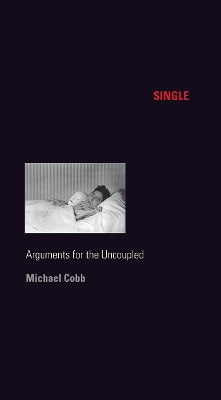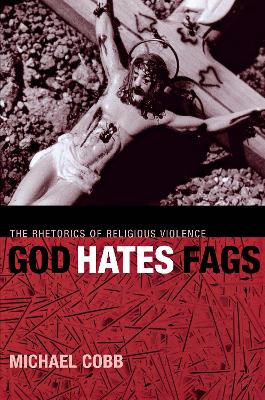Sexual Cultures
2 total works
A radical defense of a solitary life
What single person hasn't suffered? Everyone, it seems, must be (or must want to be) in a couple. To exist outside of the couple is to assume an antisocial position that is ruthlessly discouraged because being in a couple is the way most people bind themselves to the social. Singles might just be the single most reviled sexual minorities today.
Single: Arguments for the Uncoupled offers a polemic account of this supremacy of the
couple form, and how that supremacy blocks our understanding of the single. Michael Cobb reads the figurative language surrounding singleness as it traverses an eclectic set of literary, cultural, philosophical, psychoanalytical, and popular culture objects from Plato, Freud, Ralph Ellison, Herman Melville, Virginia Woolf, Barack Obama, Emily Dickinson, Morrissey, Georgia O'Keeffe, and Hannah Arendt to the Bible, Sex and the City, Bridget Jones' Diary, Beyoncé's “Single Ladies (Put a Ring On It),” and HBO's Big Love. Within these flights of fancy, poetry, fiction, strange moments in film and video, paintings made in the desert, bits of song, and memoirs of hiking in national parks, Cobb offers an inspired, eloquent
rumination on the single, which is guaranteed to spark conversation and consideration.
2007 Choice Outstanding Academic Title
At the funeral of Matthew Shepard—the young Wyoming man brutally murdered for being gay—the Reverend Fred Phelps led his parishioners in protest, displaying signs with slogans like “Matt Shepard rots in Hell,” “Fags Die God Laughs,” and “God Hates Fags.” In counter-protest, activists launched an “angel action,” dressing in angel costumes, with seven-foot high wings, and creating a visible barrier so one would not have to see the hateful signs.
Though long thought of as one of the most virulently anti-gay genres of contemporary American politics and culture, in God Hates Fags, Michael Cobb maintains that religious discourses have curiously figured as the most potent and pervasive forms of queer expression and activism throughout the twentieth century. Cobb focuses on how queers have assumed religious rhetoric strategically to respond to the violence done against them, alternating close readings of writings by James Baldwin, Tennessee Williams, Jean Toomer, Dorothy Allison, and Stephen Crane with critical legal and political analyses of Supreme Court Cases and anti-gay legislation. He also pays deep attention to the political strategies, public declarations, websites, interviews, and other media made by key religious right organizations that have mounted the most successful regulations and condemnations of homosexuality.

